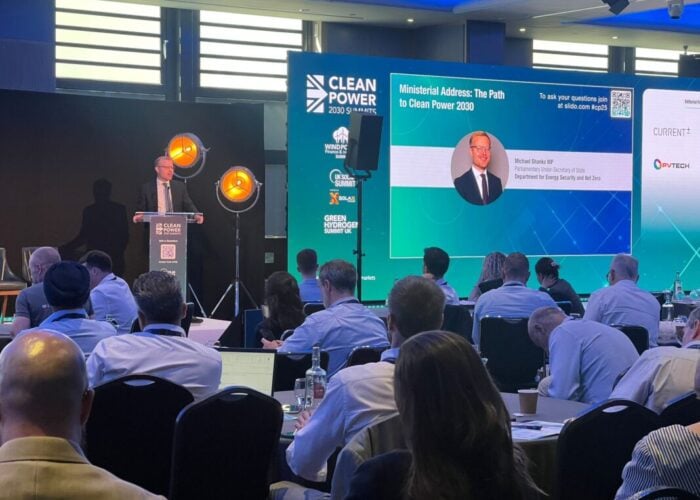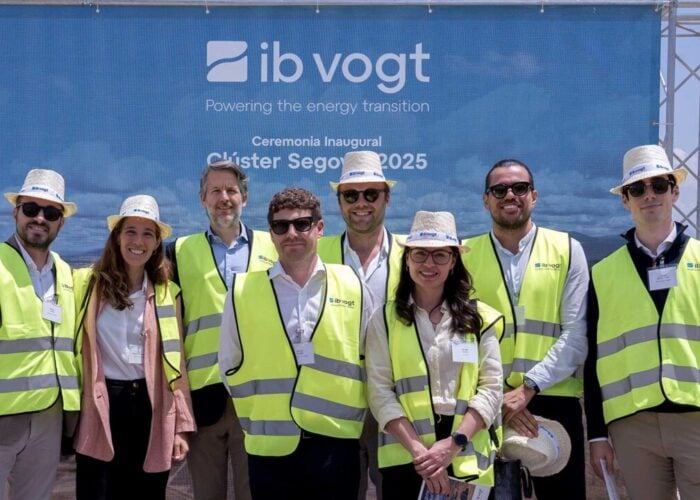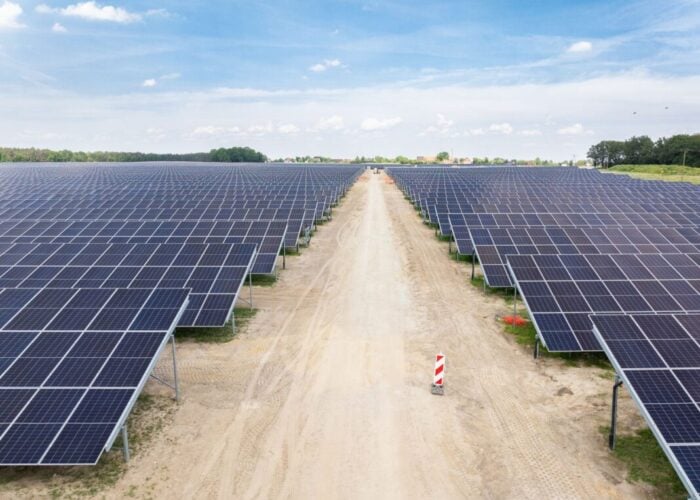
A project developer has bid for solar capacity in the Indian state of Andhra Pradesh for a game-changing INR 4.79/kWh (US$0.073), which takes solar to grid parity with other major sources of power generation in India, sources have confirmed to PV Tech.
The second round of bidding in the 500MW auction in the Indian state of Andhra Pradesh has not yet reached a conclusion, although at least five developers put in bids below INR 5/kWh.
Unlock unlimited access for 12 whole months of distinctive global analysis
Photovoltaics International is now included.
- Regular insight and analysis of the industry’s biggest developments
- In-depth interviews with the industry’s leading figures
- Unlimited digital access to the PV Tech Power journal catalogue
- Unlimited digital access to the Photovoltaics International journal catalogue
- Access to more than 1,000 technical papers
- Discounts on Solar Media’s portfolio of events, in-person and virtual
Jasmeet Khurana, senior consulting manager at analyst firm Bridge to India, said this means solar projects are now in the same range of electricity prices as wind projects and even new greenfield coal-fired power projects, which tend to have tariffs ranging between INR 4.50/kWh and INR 5/kWh. This means the entire power sector in India will have to assess the progress of solar and plan investments around its potential.
Khurana added: “Overall I think this changes the paradigm not just for the solar sector, but also for the power sector in India.”
He also said the 100GW of solar capacity by 2022 target set by prime minister Narendra Modi remains a huge target, however, at state level there is a new model. Until now, solar projects were only built if incentivised or when firms wanted meet their Renewable Purchase Obligation (RPO), which is a mandate for distribution companies to purchase a certain amount of their power from renewable sources.
Khurana added: “That is giving way to a narrative where solar is now one of the competing power sources in terms of price. In terms of economics it is already making a lot of sense, even without any incentives or obligations.”
Today marks the first time that tariffs for solar projects in India dropped below INR5/kWh during the second round of the 500MW National Solar Mission (NSM) auction in Andhra Pradesh.
Yesterday the first round of bidding took place for the tender, which was issued by Indian state utility National Thermal Power Corporation (NTPC), with firms competing to develop solar capacity in the Ghani Solar Park, Kurnool District. The bids guaranteed that the highest possible tariff would be INR5.37/kWh with developers Suzlon and CESC being disqualified for having the two highest bids.
In a blog for Bridge to India, Khurana suggested that tariffs below INR 5.25/kWh will “move into the realm of being unattractive investments”.
Jigar Shah the well-known clean energy entrepreneur and co-founder of SunEdison, who leads specialist finance company Generate Capital, told PV Tech: “The goal of the Indian Government is to reach 100,000MW of solar in the next few years. To do that, India has to attract over US$100 billion of investor capital and the returns today are simply not high enough for investors [at] INR 4.80/kWh. As solar becomes more local, more efficient, and more stable in India you will see investors become more aggressive.”
Extremely aggressive bidding in India’s state auctions over the summer has been consistently cited as a major worry by stakeholders in terms of project viability, with many claiming that tariffs below INR 6/kWh are unworkable and unsustainable. Even predictions of a market correction have not come to fruition.
Bridge to India founder Tobias Engelmeier joined a debate about sustainable prices with Shah on Twitter:
@GayrajanKohli @TEngelmeier @pv_tech #solar under INR 6, makes no sense, time to scrap auctions
— Jigar Shah (@JigarShahDC) November 3, 2015
Would say 5.7 – but agree. Now cost is known, need to focus on delivery @bridgetoindia https://t.co/TNjQav4FR0
— Tobias Engelmeier (@TEngelmeier) November 3, 2015
In light of today’s results, Khurana said the debate over sustainable tariffs will continue to rage on, but five companies putting in bids below five rupees indicates that they must have financial models that allow them to do so.
He added: “It is difficult to make sense of it and there are a lot of [players] sitting there with their hands up in the air saying that we can't play this game. This is very, very aggressive [bidding].”
Looking ahead to the next auction for capacity within a solar park in Rajasthan, Khurana predicted that if the winning bidder or bidders from Andhra Pradesh believe they have made the right decision bidding at INR 4.79/kWh then the tariff should be even lower in Rajasthan, because the cost of the associated solar park is lower and the generation cost is also likely to be slightly lower.
Solar reaching grid parity is a major breakthrough in the context of India’s, and indeed the world’s, energy history. Energy minister Piyush Goyal has made it a priority to provide electricity to the whole population of India by March 2019. This is likely to require vast amounts of new coal-fired power generation.
In a blog for PV tech in May, Tobias Engelmeier said that a coal-heavy scenario in India going forward, as opposed to a solar-heavy scenario, “would be a terrible and indefensible choice from the point of view of the global climate”.
Also on Twitter, Goyal said: “Delighted that Solar Tariffs in India have broken Rs 5/kWh level.”
This article has been revised to say that a project developer has “bid for” solar capacity at INR 4.79/kWh, and generation costs in Rajasthan are likely to be “slightly lower”.







